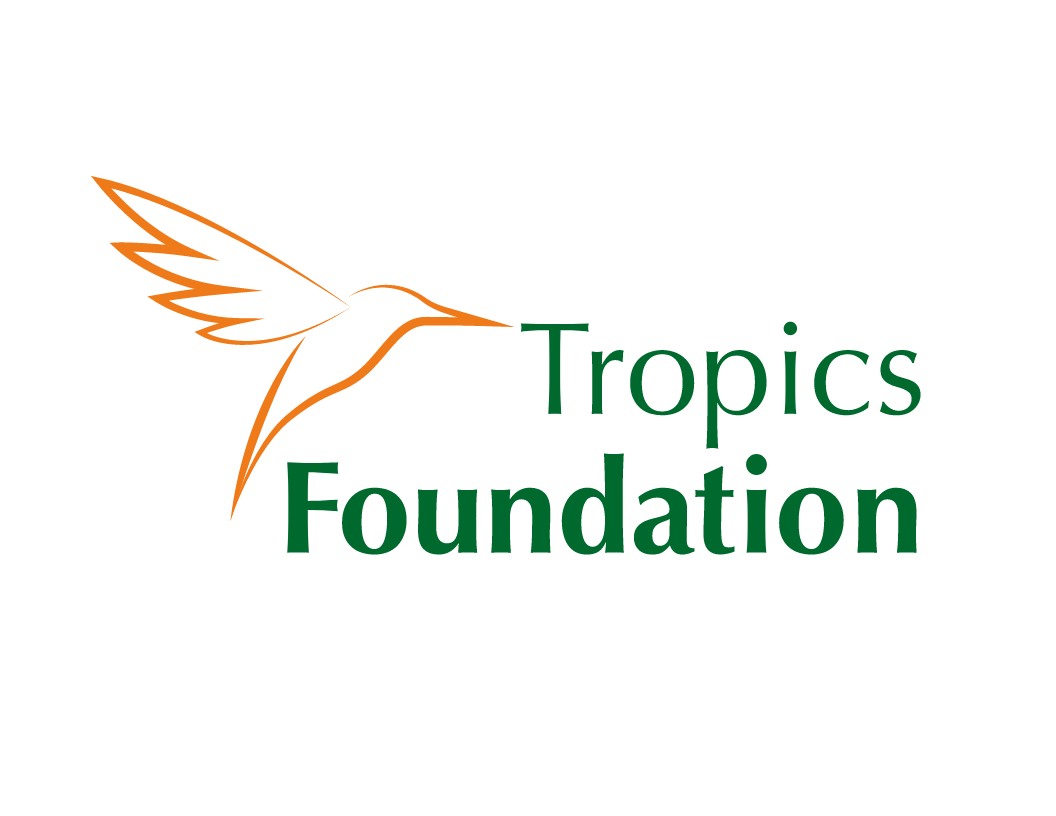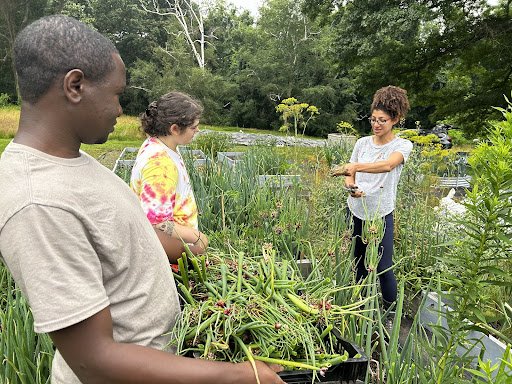What Lies Ahead: current trends in modality at CATIE’s Graduate School and implications for the future
Written by Katie Modic
For over 75 years, CATIE graduation ceremonies have taken place in the historic Wallace Building in the Sala of Ex Directores
For 76 years, the Tropical Agricultural Research and Higher Education Center has been graduating master’s and doctoral students; the first cohort of graduates receiving their master’s degrees from the institution in 1947. CATIE is currently considered one of the most accomplished higher education institutions in Latin America, ranked #1 in the quantity of scientific publications (topping 10,000) and graduating over 3,000 students with formal post-secondary degrees with a largely scientific focus. The students who graduate from CATIE move on to fields that are innovating solutions in the areas of climate change, conservation of natural resources, agricultural development, and forest biodiversity, among others.
The results of a 2019 survey show that the majority of CATIE graduates reported working in areas related to climate change, conservation, agricultural development, and forests and biodiversity.
CATIE Alum Indira Ortiz, farm manager at Chatham University in Pittsburgh, PA, showing students Edmond Nyirenda and Rory Popp how to harvest walking onions from a Movable High Tunnel
Not surprisingly, alumni consider their educational experiences at CATIE be life-changing. “I chose CATIE because it offers a great variety of environmental and social programs”, shared Indira Ortiz, who graduated from the Agroforestry and Sustainable Agriculture program in 2015. Indira now works at Chatham University in Pittsburgh, PA, USA. Part of her role is as an organic farm manager, teaching her students production practices around organic vegetables, maple syrup, honey and mushrooms. “CATIE has exceptional international faculty and very unique research opportunities, which makes it one of the best graduate schools in the Central American region that focuses on climate change, tropical agriculture, genetics, and food security.”
Unequivocally, CATIE occupies a very special niche in the Latin American region providing international face-to-face programs that emphasize application, practice, and research. Like Indira, many of CATIE’s graduates appreciate the caliber of their education. A recent student survey cited CATIE’s international prestige, the proximity to world-class researchers, the option for internships and hands-on practice in the field, the international makeup of students, the experience of living in Costa Rica, and the ability to be fully immersed in one’s studies as the primary advantages to CATIE’s traditional in person educational track.
Times are a changing
In the last 10 years, however, a global pandemic coupled with shifting interests of potential students, employers, and donor countries have begun to change the face of CATIE’s formal educational programming. A 2022 survey of 302 people who applied for master's degrees at CATIE between 2017 and 2022 revealed that the most common preference (47 %) was “a virtual modality of programs with a minor face-to-face component”. Another 23% of survey participants stated a 100% virtual modality was their first choice. At present, if you opened a course catalog, you would see that CATIE offers not only the traditional campus-based face-to-face programs, but has also added virtual programs and bi-modal professional master's degrees programs as well.
New Opportunities and Costs
CATIE purchased IT equipment with a USAID ASHA grant in 2019 to deliver virtual programming throughout the campus
Diversifying program delivery options better meets some of the market’s current preferences, opens opportunities for access to non-traditional students, and increases potential for enrolment. However, there are costs involved in this shift as well. Some of those costs are literal. In 2020, CATIE received a roughly $500,000.00 grant from USAID’s ASHA program to cover some of the commodity costs to support the shift to online and blended education including computers, smartboards, video projectors, servers, switches, Wi-Fi access points and fiber optics cables. It also requires time and resources to train faculty to employ adequate educational pedagogy to online formats. It can be challenging to organize, track, evaluate and teach practical, skill-based courses virtually.
Other costs are less obvious. For example, historically, CATIE has trained the technicians who have been critical to developing the agricultural sector in Latin America. A good example are those trained in integrated pest management (IPM). With climate change, having a cadre of people trained in IPM is critical. This skill is difficult to teach in a virtual setting. Losing this kind of technical expertise is one of the "risks" going forward. Many of the people trained in IPM in the past are of retirement age, so it's important that CATIE is positioned to backfill this critical gap.
Responding to Shifting Priorities
To better understand the evolving current trends affecting the institution in real time, the graduate school issued a data collection project to shed some light on these trends. In 2023, Nadine Lehrer, a visiting professor from Chatham University in Pittsburgh, PA conducted a survey to collect ideas and opinions about in-person, virtual, and bi-modal modalities from CATIE’s current students, graduates, potential students and employers of CATIE graduates. See the full bilingual survey results here.
Take Away
The most notable results of the survey include that there is a split between two groups of stakeholders: current students and graduates on the one hand, and prospective students and employers on the other. For current and graduate students, face-to-face programming including field trips, interaction with teachers and colleagues, and the CATIE environment, are key parts of their experience and the quality of their learning. They do not want to lose these aspects that make CATIE so unique. On the other hand, many potential students and employers are more interested in virtual or bimodal formats, naming values like flexibility of structure in terms of work, family and finance as key selling points.
In person students sampling CATIE’s Sustainable Goat Farm products: milk, yogurt, and cheese produced in a working pilot farm on campus
Implications for the Future
The survey results unveil the likelihood that there are two primary audiences for the master's degrees, one who recognizes the unique value add of an in-person program and a second who appreciates the value of more flexible options for obtaining an advanced degree. Either avenue implies specific work for the institution. While it could be very useful to have more virtual and bimodal possibilities, this implies a different style of work and training on the part of CATIE faculty and additional infrastructure and maintenance costs. Also, while there is still a lot of interest in face-to-face programs, the lack of current scholarships to support in person students is a significant challenge. “During my application process I was very fortunate to get a scholarship through MAP (Mesoamerican Agro-environmental Program). It would not have been possible for me to go to CATIE and accomplish my biggest dream without that economic support,” shared Indira of the life-changing opportunity a CATIE scholarship provided her.
Funding the Future
Whether virtual, bimodal, or in-person, there is a literal cost involved to develop the pipeline of talent and innovation the region requires for jobs in the broader agricultural sector. The full package to graduate with an in-person degree from CATIE is roughly $35,000.00. This covers tuition/fees, room, board, research and field studies for an 18-month program. The bi-modal and virtual programs cost between $15,000.00 - $9,000.00 per degree. The majority of CATIE’s students come from rural agricultural backgrounds and roughly 94% require full or partial financial assistance to attend. At present, 70% of the students who are accepted to study never end up enrolling because they lack the funds.
The Tropics Foundation takes our role in supporting CATIE’s scholarship program very seriously (and also greatly enjoys this aspect of our work). Our staff work alongside current CATIE students to help tell their stories, helping our network of philanthropists and potential sponsors connect to the human side of supporting a life-changing educational opportunity. Our Pathways for Progress Campaign raises funds for general scholarships that support deserving students from 13 countries across Latin America and the Caribbean. We also run more specialized scholarship funds, like the Miley González Scholarship Fund, supporting students from Latin America’s indigenous communities. To talk to our Philanthropy team about options for supporting CATIE scholarships, please reach out to Katie Modic: katie.modic@catie.ac.cr.






